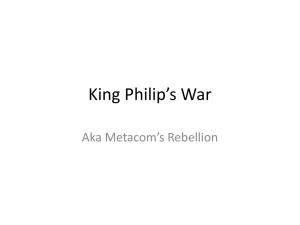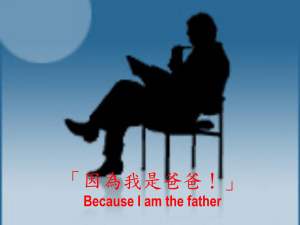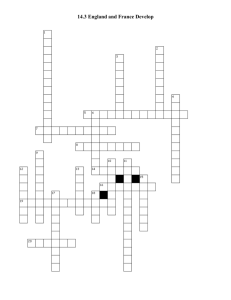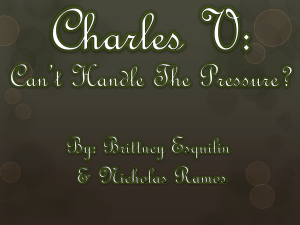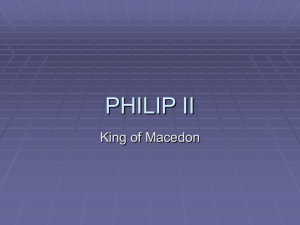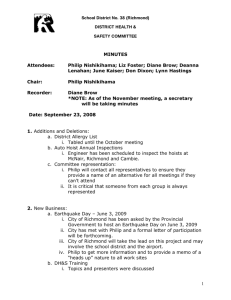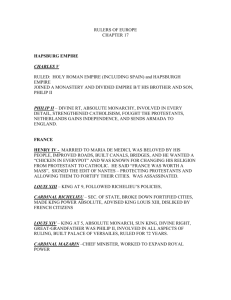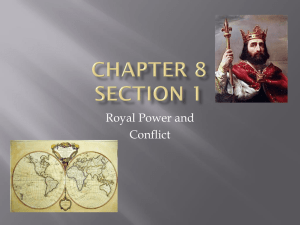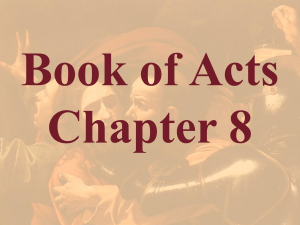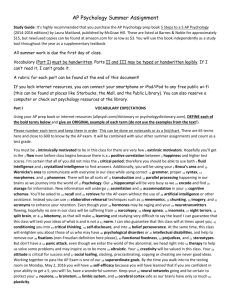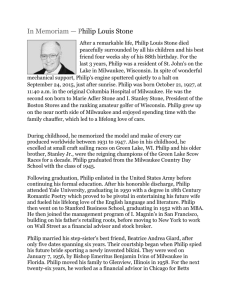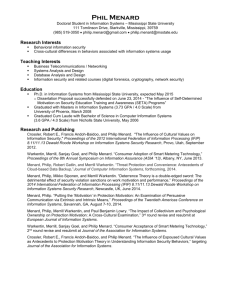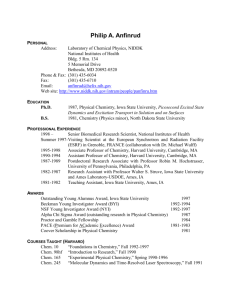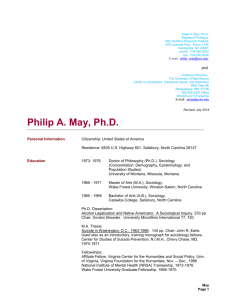Axtell, James. The European and the Indian. New York: Oxford
advertisement
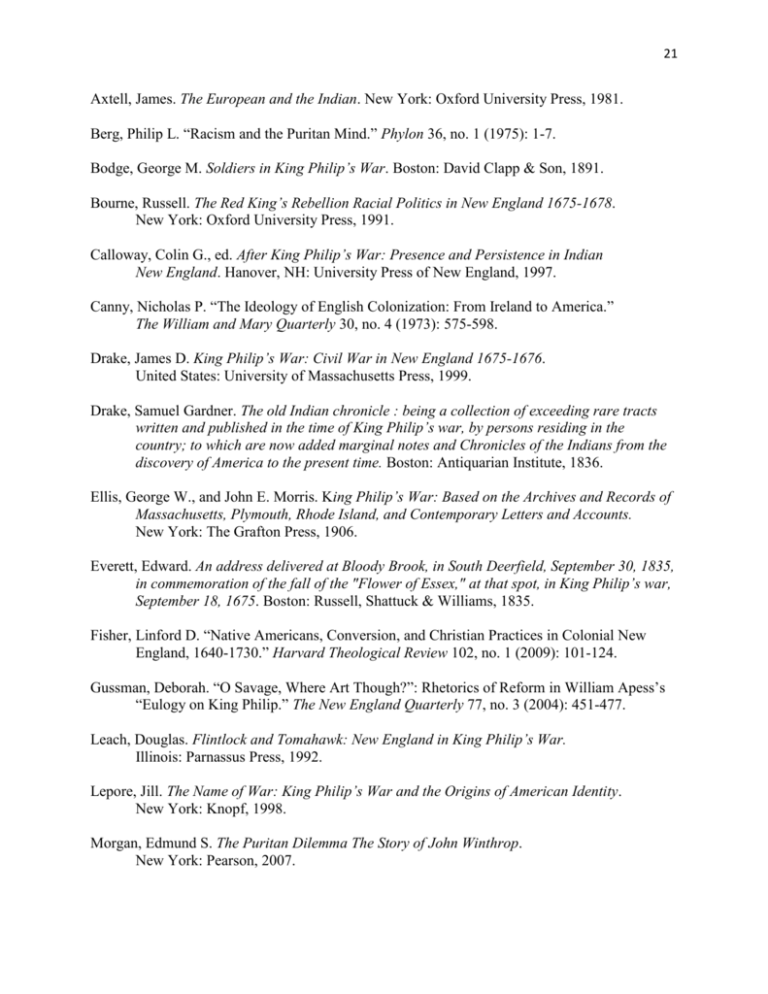
21 Axtell, James. The European and the Indian. New York: Oxford University Press, 1981. Berg, Philip L. “Racism and the Puritan Mind.” Phylon 36, no. 1 (1975): 1-7. Bodge, George M. Soldiers in King Philip’s War. Boston: David Clapp & Son, 1891. Bourne, Russell. The Red King’s Rebellion Racial Politics in New England 1675-1678. New York: Oxford University Press, 1991. Calloway, Colin G., ed. After King Philip’s War: Presence and Persistence in Indian New England. Hanover, NH: University Press of New England, 1997. Canny, Nicholas P. “The Ideology of English Colonization: From Ireland to America.” The William and Mary Quarterly 30, no. 4 (1973): 575-598. Drake, James D. King Philip’s War: Civil War in New England 1675-1676. United States: University of Massachusetts Press, 1999. Drake, Samuel Gardner. The old Indian chronicle : being a collection of exceeding rare tracts written and published in the time of King Philip’s war, by persons residing in the country; to which are now added marginal notes and Chronicles of the Indians from the discovery of America to the present time. Boston: Antiquarian Institute, 1836. Ellis, George W., and John E. Morris. King Philip’s War: Based on the Archives and Records of Massachusetts, Plymouth, Rhode Island, and Contemporary Letters and Accounts. New York: The Grafton Press, 1906. Everett, Edward. An address delivered at Bloody Brook, in South Deerfield, September 30, 1835, in commemoration of the fall of the "Flower of Essex," at that spot, in King Philip’s war, September 18, 1675. Boston: Russell, Shattuck & Williams, 1835. Fisher, Linford D. “Native Americans, Conversion, and Christian Practices in Colonial New England, 1640-1730.” Harvard Theological Review 102, no. 1 (2009): 101-124. Gussman, Deborah. “O Savage, Where Art Though?”: Rhetorics of Reform in William Apess’s “Eulogy on King Philip.” The New England Quarterly 77, no. 3 (2004): 451-477. Leach, Douglas. Flintlock and Tomahawk: New England in King Philip’s War. Illinois: Parnassus Press, 1992. Lepore, Jill. The Name of War: King Philip’s War and the Origins of American Identity. New York: Knopf, 1998. Morgan, Edmund S. The Puritan Dilemma The Story of John Winthrop. New York: Pearson, 2007. 22 Naeher, Robert J. “Dialogue in the Wilderness: John Eliot and the Indian Exploration of Puritanism as a Source of Meaning, Comfort, and Ethnic Survival.” The New England Quarterly 62, no.3 (1989): 346-368. Phillips, Carla, William Phillips. “The Quest for Trade and Christians.” The World of Christopher Columbus, Cambridge University Press (1992): 37-63. Rhonda, James. “We Are Well As We Are”: An Indian Critique of Seventeenth-Century Christian Missions.” William and Mary Quarterly 34, no. 1 (1977): 66-82. Salisbury, Neal. ”Religious Encounters in a Colonial Context: New England and New France in the Seventeenth Century.” American Indian Quarterly 16, no. 4 (1992): 501-509. Simmons, William S. “Conversion from Indian to Puritan.” The New England Quarterly 52, no. 2 (1979): 197-218. Shultz, Eric B., and Michael J. Tougias, ed. King Philip’s War The History and Legacy of America’s Forgotten Conflict. Woodstock, VT: The Countryman Press, 1999. Slotkin, Richard, and James K. Folsom, ed. So Dreadful a Judgement; Puritan Responses to King Philip’s War 1676-1677. Canada: Wesleyan University, 1978. Thomson, David. “The Antinomian Crisis.” Early American Literature 38, no. 3: 401-426. Vaughan, Alden T., and Edward W. Clark, ed. Puritans Among the Indians Accounts of Captivity and Redemption 1676-1724. Cambridge: Belknap Press, 1981. Webb, Stephen Saunders. 1676: The End of American Independence. New York: Syracuse University Press, 1995. Winiarski, Douglas L. “Native American Popular Religion in New England’s Old Colony, 1670-1770.” Religion and American Culture 15, no. 2 (2005): 147-186.
